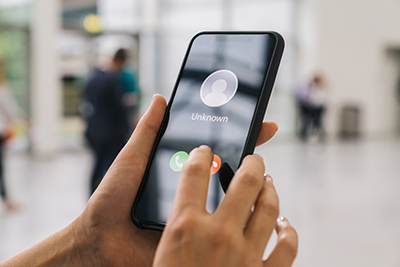Receiving communication from the IRS can be stressful. Now thanks to scammers, we have to wonder if the communication is legitimate or an IRS scam. We must be vigilant in understanding how and when to respond to written IRS correspondence. If you receive mail from the IRS, they state:
- They will not demand a specific payment method such as a prepaid debit card, gift card, or wire transfer.
- They will not demand immediate payment. Normal correspondence begins with a letter in the mail and taxpayers can appeal or question what they owe.
- They will not threaten to bring in local police, immigration officers or other law enforcement agencies.
If the IRS is legitimately contacting you, you should first receive a letter from the IRS in the mail. Avoid e-mails, text messages, social media, and phone calls. The IRS does not contact taxpayers by these methods. It is important to note that IRS scams tend to threaten and push you for personal information including filing status, refunds, bank information, social security numbers, and addresses. Take control of your situation and call the IRS directly so you can be confident in what you need to do. If you feel that you are not getting all the answers from the IRS agent you are speaking to, it does not hurt to hang up and call again to speak to a different agent. When in doubt, contact a tax professional at Meadows Urquhart Acree and Cook, LLP.




